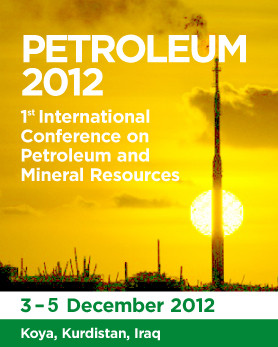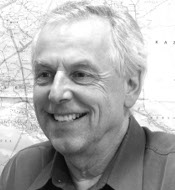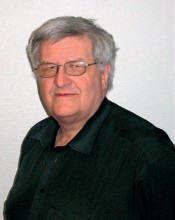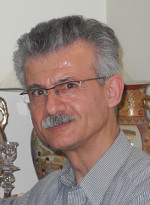1st International Conference on Petroleum and Mineral Resources
3 - 5 December 2012
Koya, Kurdistan, Iraq
Overview

The first International Conference on Petroleum and Mineral Resources was held in Kurdistan, Iraq, organised by the University of Koya and the Wessex Institute of Technology, UK.
The Kurdistan region of the north of Iraq is rich in oil, gas and mineral resources as well as underground water. Until recently the political and security issues were such that the region was unable to take advantage of those resources. Nowadays Kurdistan is emerging as one of the fastest developing areas in the Middle East with its universities playing a major role in the process.
Koya University is one of the four institutions in the whole of Iraq with outstanding Petroleum, Chemical and Geotechnical Engineering Departments and hence it was the ideal location for the conference. Koya University is keen to build new academic and industrial links with institutions and organisations from all over the world. The meeting offered the opportunity for academics and practitioners working in industry to meet and interact in an international forum and explore areas for future collaboration.
The meeting has been made possible by the support received from the Faculty of Engineering at Koya University, as well as the Ministry of Higher Education and Scientific Research of the Kurdistan region. The organisation of the conference was carried out by close consultation between Koya University and the Wessex Institute of Technology.
Special Seminar
The event started with a pre-conference session given by two well known colleagues from Norway, on the topic of ‘The Production of Hydrocarbons and the Usage of Gas’. The presenters were Professor Ove Gudmestad of the University of Stavanger, and Dr Kjell Traa, head of his own consulting firm.
Prof Gudmestad’s part of the seminar dealt with ‘Inspection and maintenance strategies for increased oil recovery’ in which he discussed different problem scenarios and monitoring of reservoir behaviours, including the tail end production of Norwegian offshore fields. He also explained the need for inspection and maintenance in increased oil recovery, the relationships between safety and inspection maintenance. An important condition is the risk to the environment which can be reduced through proper inspection maintenance. He concluded by discussing the economic evaluation of different inspection and maintenance strategies.
Prof Gudmestad, is author of a well known book on ‘Petroleum Resources’, published by WIT Press (ISBN:978-1-84564-478-9) which is widely used for courses. The book treats in a consistent manner the key aspects related to the development of petroleum resources in order to allow an interdisciplinary view of the topics included in petroleum projects and to identify the optimal development solution. The volume is organised to allow the reader to review the different topics individually so that it can serve as a reference source for those interested only in particular topics.
The second part of the seminar was given by Dr Kjell Traa, who has had a long and distinguished career in petroleum engineering. He graduated at the Norwegian University of Technology and has been in the oil and gas industry all his working life. He started as an engineer on pipeline and terminal facilities and in many other projects, principally in Norway, including the Troll field development. He also served as a Manager for Statoil in Belgium. During his career he acted as technical manager, managing director and project manager for Statoil, including projects in Vietnam, China, Venezuela, Angola and other places around the world.
Dr Traa's part of the seminar dealt with ‘Industrial use of gas, including petrochemical products’. He discussed natural gas definitions and compositions, and natural gas characteristics as industrial feed-stock. He also talked about gas conversion definitions, gas conversion overview and direct conversion of gas, gas conversion by combustion, via synthetic gas and by cracking. He discussed too gas conversion and value, gas consumption and presented cost figures for selected options.
Opening of the Conference

Koya itself, he explained, is a city over 3000 years old, with a rich cultural heritage, home to great writers and artists, including the current President of Iraq. Koya University is only 10 years old but has developed rapidly and will continue to do so, as a result of the importance that Kurdistan gives to education.
The next speaker was Dr Beriwan Khailans, from the Ministry of Development of Kurdistan, who referred to the considerable activities taking place to develop the Petroleum capabilities of the region and the effect this has had on the economy.
Kurdistan can offer not only oil but a substantial manufacturing base and more importantly has a human resource capital, with a population willing to succeed. As part of these developments the Ministry has opened 4000 scholarships for studying abroad, of which 2000 have duly been taken, with students and researchers sent all over the world, more particularly to the UK. Kurdistan – he said – is confident of a better future and welcomes collaboration with different organisations abroad.
Prof Fuad Khoshnaw, Chairman of the conference, spoke afterwards welcoming the conference delegates and to thank the work done by the Wessex Institute of Technology in organising the meeting, expressing his gratitude to all members of the WIT staff, particularly to Professor C A Brebbia, Director of WIT.
Prof Khoshnaw referred to the difficulties encountered organising a joint international conference in Koya, a region that is peaceful and prosperous but it is not perceived as such. The success of this first meeting however, will convince future delegates to participate when the conference is reconvened in 2014.

Carlos explained that WIT acts as a forum for the exchange of knowledge amongst different disciplines. As part of that research, WIT trains PhD students, organises courses and conferences, and publishes a substantial number of books per year. The volume of WIT Transactions corresponding to this conference can be found in http://library.witpress.com, where all WIT conference papers are permanently archived.
An important feature of WIT activities is to support industry with computational books for the analysis and design of complex systems in petroleum engineering, as well as aerospace, mechanical engineering and many others. WIT has developed through its associated company C M BEASY, a unique set of computer codes including those used for offshore structures, pipelines, tank farms and many other applications. This emphasis in applied research, results in the work carried out at the Institute being focussed on the practice. Although the research work is centred in the New Forest Campus, WIT also has an office in Boston that serves the US industry and maintains close links with academia.
Carlos then referred to the accommodation and research facilities at Ashurst Lodge, the campus of WIT, which is located in the unique environment of the New Forest National Park.
He concluded by thanking Koya University for the trust set in the Institute, and hoping that the delegates will consider visiting the UK campus to be able to appreciate better the work done at WIT.
Keynote Addresses
Efficient Use of Energy by Dr Kjell Traa

An additional contribution to the conference by Dr Kjell Traa was a keynote address on the topic of ‘Efficient Use of Energy’. He referred to the different types of energy resources currently available and to the large gas reserves that have been found, including the shale gas reservoirs. At present consumption gas resources ought to last 60 to 70 years, or double that length if shale gas is included.
Gas is a clean technology – Dr Traa said – albeit a low energy resource, as compared with oil. It also needs pipelines but is nowadays seen as energy able to bridge the gap until other sources become available.
The big problem nowadays in his opinion is the waste of energy. In addition we ought to look more directly at the definitions and properties of different types of energy. Exergy – that is the part of the energy that can be used – is the key variable.
The final recommendation of his talk was to learn not to waste energy, particularly in energy inefficient buildings, energy intensive lighting systems and be prepared for the growing demands for energy, as a large section of the world’s population demands a better standard of living.
Risk concept for optimal hydrocarbon production by Prof Ove Gudmestad

Prof Ove Gudmestad’s keynote address on ‘Risk concept for optimal hydrocarbon production’ dealt with the importance of managing risk in the petroleum industry.
He discussed the case of a production stoppage which can due to technical problems, related to human behaviour, sabotage or other unwanted incidents. The consequences of a production stop could be very expensive and can lead to production delays caused by the necessity of performing maintenance. Other consequences could be safety and environmentally related.
In order to manage them, risks need to be identified and mitigation effects should be determined and implemented.
Structural geological configuration of the Kurdistan Zagros and its significance in petroleum exploration by Professor Hemin Koyi

Another outstanding presentation was the keynote address by Professor Hemin Koyi of Uppsala University, Sweden, who spoke of ‘Structural geological configuration of the Kurdistan Zagros and its significance in petroleum exploration’.
The lecture dealt with the phenomenon taking place in the Zagros plates where the ground movements are being controlled by a salt layer that acts as a lubricant. The layer has low friction which results in deformation above the salt but very little below. The salt is assisting the layers above to deform, while those below are at risk.
The deformation pattern in the region consists of layers and small geological structures. These affects have been reproduced all over the region. The deformation process is remarkably complex.
The importance of the Zagros is considerable due to its abundance of petroleum resources.
Prof Hemin Koyi also organised a special session on ‘Petroleum and ore geology in Kurdistan’ consisting of four interesting presentations:- Origin of lateral thrust in Mawat area, Kurdistan
- De-risking plays in the high folded zone of the Zagros basin
- Tectono-stratigraphy of the NW segment of the Zagros fold
- Linking diagenesis to sequence stratigraphy; a powerful exploration tool
Social Occasions
 The conference breaks and lunch offered the opportunity for the delegates to know each other better. They also had occasion to visit the exhibition stands which were an added attraction, allowing the delegates to meet representatives of the local petroleum industry.
The conference breaks and lunch offered the opportunity for the delegates to know each other better. They also had occasion to visit the exhibition stands which were an added attraction, allowing the delegates to meet representatives of the local petroleum industry.
The conference dinner consisted of a series of regional dishes and the meal was accompanied by a small ensemble playing Kurdistani songs. Some of the delegates also participated in the dancing that was lead by senior members of the staff, including Professors Hawrami and Khoshnaw and included a few delegates from abroad who were brave enough to join. The whole evening was most enjoyable and relaxing.
The success of the conference will ensure that it will be reconvened in 2014, again at Koya University.
Conference Proceedings
The proceedings of Petroleum 2012, 384pp (Print ISBN: 978-1-84564-758-2 eISBN: 978-1-84564-759-9) are available from WIT Press. Orders can be placed on the WIT Press web site at www.witpress.com or by email:
2853.
Papers from the conference will also be hosted online at the WIT eLibrary as Volume 81 of WIT Transactions on Engineering Sciences (ISSN: 1746-4471, Digital ISSN 1743-3533). For more details visit the WIT eLibrary at http://library.witpress.com
Related Conferences
Fluid Structure Interaction (9-11 April 2013)
Energy & Sustainability ((19-21 July 2013)
Multiphase Flow (3-5 July 2013)
Disaster Management (9-11 July 2013)
Sustainable Chemistry (3-5 September 2013)
SAFE (17-19 September 2013)


 Wessex Institute
Wessex Institute